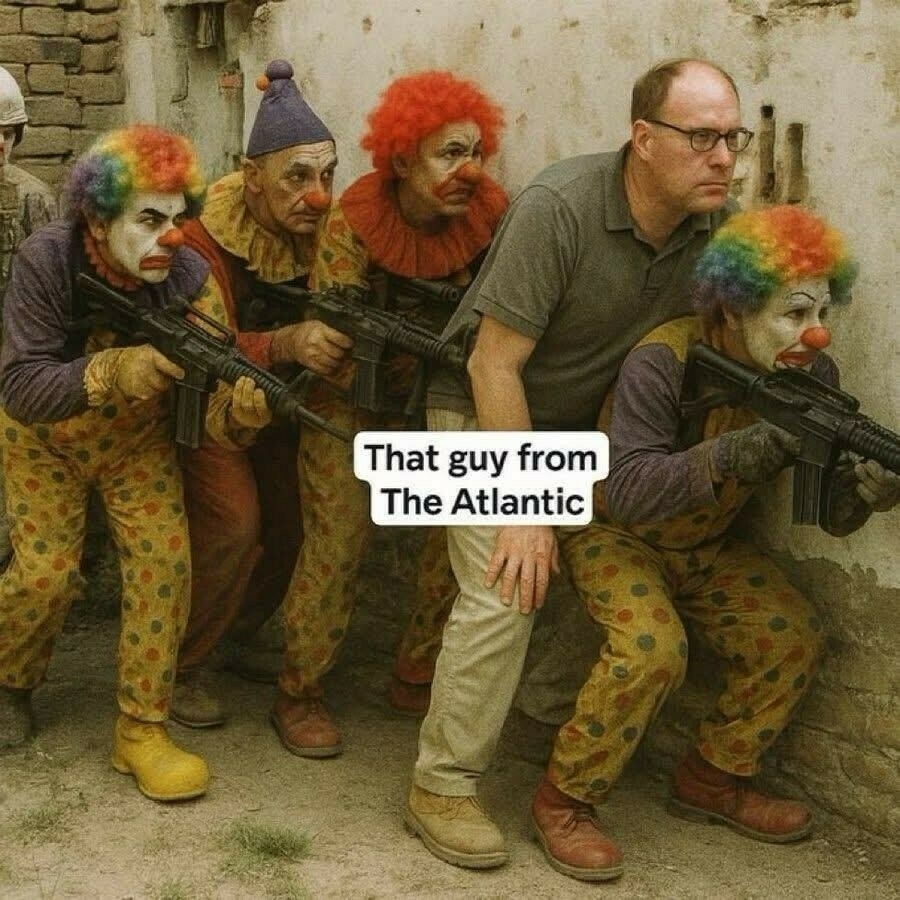Our current level of discourse, where random jokes are treated like they’re chiseled into stone by a divine hand

I’m not Very Online™ online enough to be able to understand what’s going on in popular culture, especially when it comes to the business models, politics, and norms behind it. So, thank goodness for Ryan Broderick, who parses all of this for all of us.
In this part of one of his most recent missives, Broderick talks about Barack Obama joining Bluesky, and the history (and trajectory) of people acting like brands, and brands acting like people. He says a lot in these two paragraphs, which in his newsletter he then goes to connect to the recent incident where a reporter from The Atlantic was accidentally added to a White House Signal war-planning group.
We live in interesting times, but mainly flattened times, where nothing is expected to have any more significance than anything else, and is presented to us via little black rectangle. At this point, I feel like I want to write another thesis on misinformation and disinformation in the media landscape. But perhaps it would be too depressing.
Bluesky made a big splash at South By Southwest earlier this month, with CEO Jay Graber delivering the keynote in a sweatshirt making fun of Mark Zuckerberg. When they made the shirt available for sale, it sold out instantly — in large part because it’s the first time ever that regular people have been able to give Bluesky money. The platform started as a decentralized, not-for-profit research effort, specifically trying to avoid the mistakes of Twitter, and before the shirt, it was still funded entirely by investors. Though, as of last year, they’re working on paid subscriptions. The Bluesky team has been swearing up and down that they’re working to avoid the mistakes Twitter/X has made, but if they eventually offer a subscription to Obama that treats his account identically to yours or mine, they’ve already made the most fundamental mistake here. Because the social media landscape Obama helped create, by blending the casual and the official, is the exact same one Bluesky was founded to work against. If a brand is a person, then a person has to be a brand, especially in an algorithmically-controlled attention economy that’s increasingly shifting literally everything about social media towards getting your money. And more importantly, if a government official or group has a social media presence, it has to be both a person and a brand.
And eight years after Obama walked this tightrope all the way to the White House, Donald Trump ran it up the gut. Trump, unfortunately, understands the delirious unreality of the person/brand hybrid better than maybe anyone else on the planet. Well, he might be tied with WWE’s Vince McMahon. But Trump’s first administration established a precedent of treating his tweets as official statements. And more directly than anything I’m blaming Obama for here, Trump sent us on the rollercoaster that just loop-de-looped past “a shitty website is all the transparency the US government needs” a few weeks ago. Now, there’s no difference between a post that’s an executive order, a commercial, or someone saying whatever bullshit is on their mind. In fact, it must serve as all of the above. On one end of this, you get our current level of discourse, where random jokes are treated like they’re chiseled into stone by a divine hand.
Source: Garbage Day
Image: Mastodon (various accounts posted this, couldn’t find the original)